What I Learned Researching the UnSchool’s Digital Footprint
SPECIAL REPORT BY Laura Secorun
A few months ago, the UnSchool asked me if I would like to research the impact of their digital communication strategy after taking a workshop and discovering the holistic perspective of systems and life cycle thinking and considering how this could be applied to the digital world in which I work as an investigative Journalist. I jumped at the opportunity, not just because I am an investigative journalist who loves digging up facts, but also because I am an Internet addict.
I try my best to be a conscious consumer: I don’t eat animal products, steer clear of fast fashion and regularly juggle piles of loose produce to avoid using plastic bags. Yet I still stare at my computer screen for hours on end, without much knowledge of the consequences of my online habits.
The UnSchool’s project helped me realize that, as much as it feels like it when I’m bingeing Game of Thrones, the internet is not an alternate universe. The internet is very much physical, with similar impacts as other consumption choices. What appears to users as ethereal is actually a vast material infrastructure connected across continents and oceans by cables. Each video, picture and tweet is created with devices that require the mining of rare earth minerals or stored in servers that guzzle up the worlds electricity supply.
According to International Telecommunication Union, the ICT sector is currently responsible for 2% of the world’s total greenhouse gas emissions – equivalent to the aviation sector. Swedish researchers believe that, by 2030, this number could reach 23%.
The internet isn’t very democratic either. Autocratic regimes around the world control what their citizens do online by blocking websites, like China does to Wikipedia, or creating barriers to access, like Uganda does by taxing social media services. Even in democratic nations, the majority of us operate online through platforms owned by a handful of immensely powerful for-profit companies that often abuse their power. YouTube, for example, was recently fined a record $170 million to settle allegations by the Federal Trade Commission stating that the platform illegally collected personal information from children without their parents’ consent and then used it to target ads for said minors across other Google services.
As a consumer, however, it’s very difficult to untangle this mesh of negative externalities. For one, you need to understand the technology underpinning our digital lives. Carbon footprinting alone depends on a myriad of factors including type of content, platform chosen, efficiency of both network and servers as well as the type of energy used to power them — be it fossil fuels, nuclear or renewables. Online video, for example, is extremely carbon dense, making up 80% of the world’s data traffic. So, YouTube is bad, right? Well, not so fast. A compressed video playing on a phone and viewed on YouTube, whose servers are largely powered by renewable energy, produces significantly less emissions than an HD video played on a desktop computer from Netflix’s servers, which uses only 17% renewable energy.
Even when the technical specs are easy to compare, most platforms operate internationally, and the socio-political consequences of their policies can vary wildly depending on the context. In my home country of Spain, Facebook is yet to be involved in any political scandals. But in Myanmar, where a military campaign of ethnic cleansing has forced over 700,000 Muslim Rohyinga to flee their homes, the UN found Facebook played a “determining role” in spreading misinformation and hate speech that led to violence.
Combine all of the above with the breakneck pace of tech innovation and a tendency to idolize Silicon Valley entrepreneurs and what you get is consumer apathy.
Yet just because our digital lives are complex doesn’t mean we can’t navigate them in a more empowered and sustainable way. To get you started, here are some of the key lessons I have learned during my time researching the UnSchool’s digital impact.
If you are not paying, you are likely the product
Whenever you use an online service for free, worry about your privacy. Facebook and Google don’t sell your personal data because they are trying to be evil — they do it because it’s their business model. In 2018, they made $55.8 billion and $136 billion in revenue respectively, mostly from targeted advertising.
Ads are not fundamentally bad, but providing detailed profiles on millions of users to un-vetted third parties who can then monitor their behavior in real-time is an enticing proposition for undemocratic agents. That’s how Facebook ended up allowing Cambridge Analytica to harvest data on millions of unwitting Americans. When the Federal Trade Commission (FTC) investigated the issue, they found the company had repeatedly violated a 2012 order barring Facebook from deceiving users about its privacy practices.
If privacy is your concern, you may want to consider divesting from companies whose main product is your personal information, and instead, try alternatives like MeWe for networking, DuckDuckGo for search, ProtonMail for e-mail and Signal or Telegram for texting. You can find more of these recommendations in the report that I wrote for the UnSchool (which will be published here in the next few weeks).
Silicon Valley reaches far beyond Palo Alto
We have all seen images of Silicon Valley’s famed startup offices, featuring ping-pong tables, juice bars and in-house yoga. The world’s biggest tech companies, however, also sub-contract people around the world, often to manufacture their devices and moderate their content, yet their working standards are a far cry from those of HQ employees.
Recently, dozens of Facebook and Twitter sub-contracted moderators have come forth to complain about their terrible work conditions, in the United States and also India and the Philippines. As exposed by the documentary, The Cleaners, these workers are exposed to extremely traumatic imagery, with little to no psychological support, leading to PTSD and depression.
To ensure you don’t condone forced or unsafe labor, consider researching the conditions in which your gadgets are manufactured (news reports are a good place to start) or how your content is policed, and then decide if you wish to continue to use platforms that systematically put their employees’ health on the line.
The cloud is made out of carbon
Cloud storage may save trees from being logged for paper, but that doesn’t make it carbon neutral. According to Justin Adamson, a Stanford graduate in Atmosphere and Energy Engineering, storing 100 gigabytes of data (about 100 average movies) in the cloud each year would result in a carbon footprint of about 0.2 tons of CO2 (based on the U.S. electric mix) — the equivalent of flying from New York to Los Angeles.
So if you want to safeguard your files in the most carbon efficient way, consider using physical hard drives. You can also opt for other cloud storage options or web hosting services like Ionos that are powered largely by renewable energy. Get into the habit of regularly de-cluttering your digital closets, ensuring there are no useless apps, redundant back ups or old movies that can be permanently erased to lighten your carbon footprint.
Your smartphone is not that smart
Phones use less electricity than computers, so it’s environmentally efficient to use them to answer e-mail and read the news. But when it comes to their manufacturing, phones are major polluters. According to a study from McMaster University, by 2020 the ecological footprint of smartphones alone will surpass the individual contribution of desktops, laptops and other displays – largely because of the mining of rare materials needed to build a new device.
The problem is that smartphones also have a much shorter life cycle than the rest of devices. So try to keep your current phone for as long as you possibly can, and if you can not fix it, dispose of it responsibly – e-waste is incredibly hazardous and often not recycled. If you have to buy a new one, prioritize ones that can be easily repaired and check the “GreenPeace Guide to Greener Electronics” (Fairphone and certain Apple products lead the pack).
New is not always better
The tech sector is brilliant at marketing new products as upgrades and must haves, but that’s not always the case. The same study that exposed smartphones’ ecological footprint found that, on average, new models with larger screens have a worse carbon footprint than their smaller predecessors.
Disrupting an industry can also disrupt ecosystems. Blockchain technology has long been hailed as the answer to many world’s biggest trust issues, including ethical finance, fake news and electoral fraud. But such a change may come at a massive environmental cost, particularly when it comes to mining cryptocurrencies. According to a paper published on Joule, a scientific journal for energy research, the annual carbon emissions associated with the creation of Bitcoins alone are close to those of countries like Jordan or Sri Lanka. Some even claim it is the new oil.
It’s not all bad
The Internet is not going to single-handedly push humanity to mass extinction. E-mail saves trees, video conferencing saves car and flight miles, and the economic benefits of free access to information are virtually incalculable. The Global e-Sustainability Initiative even says innovation in communication technology could lead to emission reductions in other industries, amounting up to five times the size of the ICT’s carbon footprint.
Sustainability is always a trade off and the same holds true for our digital sources. As mentioned previously, Facebook and Google may be actively undermining the free market, and the FTC is currently investigating them both for possible antitrust violations. Yet Facebook and Google are also exemplary leaders when it comes to promoting environmental sustainability in the tech world. The first is the largest corporate purchaser of renewable energy in the world and the latter has been powering 100% of its global operations with renewables since 2017.
The key to navigating this maze is staying curious. As an individual, take the time to track your habits, read news about the industry and make sure to support platforms that act in accordance to your values. As an organization, think of following the UnSchool’s example. Do an independent audit on the impacts of the tools and processes your team uses and then set up new policies to align your online actions with your sustainability goals and ethical values.
Each small action counts. So instead of rushing to share this article on social media, consider going for a stroll instead. The planet will thank you for it, and I promise I won’t be offended.
———————
Next week we will release the report Laura wrote, along with the actions we are taking at the UnSchool to address our digital footprint.













